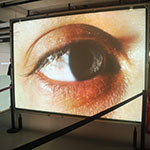Euroacademia Conferences
 Europe Inside-Out: Europe and Europeanness Exposed to Plural Observers (9th Edition) April 24 - 25, 2020
Europe Inside-Out: Europe and Europeanness Exposed to Plural Observers (9th Edition) April 24 - 25, 2020 Identities and Identifications: Politicized Uses of Collective Identities (9th Edition) June 12 - 13, 2020
Identities and Identifications: Politicized Uses of Collective Identities (9th Edition) June 12 - 13, 2020 8th Forum of Critical Studies: Asking Big Questions Again January 24 - 25, 2020
8th Forum of Critical Studies: Asking Big Questions Again January 24 - 25, 2020 Re-Inventing Eastern Europe (7th Edition) December 13 - 14, 2019
Re-Inventing Eastern Europe (7th Edition) December 13 - 14, 2019 The European Union and the Politicization of Europe (8th Edition) October 25 - 26, 2019
The European Union and the Politicization of Europe (8th Edition) October 25 - 26, 2019 Identities and Identifications: Politicized Uses of Collective Identities (8th Edition) June 28 - 29, 2019
Identities and Identifications: Politicized Uses of Collective Identities (8th Edition) June 28 - 29, 2019 The European Union and the Politicization of Europe (7th Edition) January 25 - 26, 2019
The European Union and the Politicization of Europe (7th Edition) January 25 - 26, 2019 7th Forum of Critical Studies: Asking Big Questions Again November 23 - 24, 2018
7th Forum of Critical Studies: Asking Big Questions Again November 23 - 24, 2018 Europe Inside-Out: Europe and Europeanness Exposed to Plural Observers (8th Edition) September 28 - 30, 2018
Europe Inside-Out: Europe and Europeanness Exposed to Plural Observers (8th Edition) September 28 - 30, 2018 Identities and Identifications: Politicized Uses of Collective Identities (7th Edition) June 14 - 15, 2018
Identities and Identifications: Politicized Uses of Collective Identities (7th Edition) June 14 - 15, 2018
Dracula, from History to Cinema
-
-

-
Presentation speakers
- Flavio Sanza, Swansea University, UK
- Download presentation
Abstract:
The goal of my paper is to present Dracula as the ‘real king’ of the Eastern Europe culture. Vlad of Wallachia was a real character who lived in Transylvania between 1431 and 1476. His nickname “Dracula” comes from Romanian “Dracul” and means “Dragon”. After his death, Vlad earned the surname Tepes (Impaler) because of he was used to impale his enemies. From this character, Bram Stoker derived material to write his masterpiece Dracula (1897). The book is composed by different diaries written by people who faced the monster. This was the beginning of the vampire legend that fascinated a large audience, from children to adults. But the real myth of Dracula comes from movies. Famous ‘vampire’ actors had been Bela Lugosi and Christopher Lee, but we find good examples also in Coppola’s Dracula, Blade, Underworld and Twilight. Finally, we should remember famous TV series as Buffy the Vampire Slayer and True Blood.
-
Related Presentations

The Curious Case of Martha Graham in Romania
- Camelia Lenart

Urban Transformation in a Post-Socialist Society: From Unity to Separation
- Aleksandar Joksimović

Central East European Countries’ Accession into the European Union: Role of the Extensive Margin for Trade in Intermediate and Final Goods
- Inmaculada Martínez-Zarzoso
- Anca M. Voicu
- Martina Vidovic















